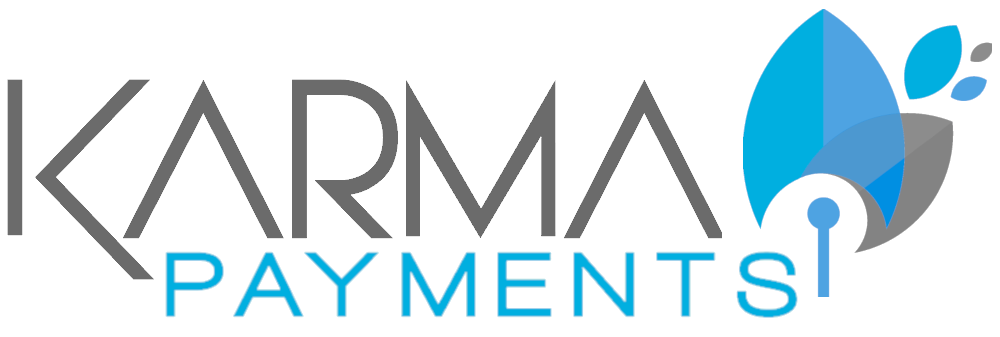
Karma Benefits Food Banks
May 13, 2020The European Citizen Science Association (ECSA) is a membership and networking organisation for practitioners and researchers of citizen science in Europe. 2020) based on the ECSA 10 Principles of Citizen Science for good practice (Robinson et al. ECSA and EU-Citizen.Science are co-hosting a webinar about the recently published ‘Characteristics of citizen science’. Margaret works for the European Citizen Science Association (ECSA) in the WeObserve, LandSense, and EU-Citizen.Science projects. You can read the interview here. The ‘Characteristics of citizen science’ sets out to address an important question for our field: what is citizen science, and what isn’t? %&'()*456789:CDEFGHIJSTUVWXYZcdefghijstuvwxyz��������������������������������������������������������������������������� ECSA was founded in 2014 in Germany and is ruled as charitable and member-based professional organization. �q�����Rovgv.O���9#ylh�}f��t8te>�����Mƞ��`�J��EGW��O�]��1�������R��I�6t6��kK�ʂjZ(�T��~"Ë�� ������^�� The first outcome of the survey is the ‘Characteristics of citizen science’ document, which is intended to be used in a number of ways. The document “ECSA Characteristics of Citizen Science” is coming ready with an interpretation document, which is called “ECSA Characteristics of Citizen Science – Explanation Notes“. ]c\RbKSTQ�� C''Q6.6QQQQQQQQQQQQQQQQQQQQQQQQQQQQQQQQQQQQQQQQQQQQQQQQQQ�� �" �� Characteristics of Citizen Science webinar on 27 May. Read More >> ExCiteS (Extreme Citizen Science) brings together scholars from diverse fields to develop and contribute to the guiding theories, tools and methodologies that will enable any community to start a Citizen Science project to deal with issues that concern them. ~��\�W6��������z�g�Eo�Zi�2Z(����k�z4hnK��vƃ$��+�����������ZW�;j+���֨�rd�?Ϋ����0%�}�b�����Ey�x�YS�`f�� iY���{d1ݡo�Ƌ�+;z*����j������S�/�U�d�Q@q~�o�+���yTǿr���ֻJ�� ����� ��0�ƶ=�(� ���Y��U�uIʐ�� ٮ+O��O����Awo�[�� 88�W���t�OW�֦�֦�[�� �1�`z��z����\GyC�p��4\,[��ũ��o$����G��0!~��ޕ崟���O�:����~��y�YX��wQBO@���)��ͭ ع�ێ�G�@(��ZW��� h[�S�w���n ṅe�T�6��r IEQΖn>�/����n����Vn.`��̸�8S���ր%���j67Ŗ��)�z�`H�)���1�o�2�w�����.�U�5+�e���f_��"��EPEPEPEP\NJ|P�h6vEZ����#� �֏�uq�im*���D���^V��;;�gc�I�&���i��V�iI噎I�QEIaEi[h:��>l6�A#�g�Q����c�O�����Du��x��F�.L��~x��G��z(٬������ �55y灵v���ϕ�sp~\� � ��~U�ui܆�GP�R�v��R8_O�K�]�;b�\���,��;;�Y�I5͈����r%+�u-�=�3 �tW*�Io�ĔS3FO�h�+�0��a�=� !/�u�VnO��YKd�d�� t!���*˔��i[�p��t�$��/�[���A!3�`��3� ֮��q��mJoK��R��^F��; Presentation of ECSA and the Citizen Science Platform at the Naturkunde Museum Berlin. ... AfriAlliance has received funding from the European Union’s Horizon 2020 research and innovation programme under grant agreement no 689162. This project, which Muki describes as “a really awesome collaboration”, was carried out by 28 people, a lot of whom are also involved in creating the EU-Citizen.Science platform, as well as ECSA members, ECSA board members, ECSA working group members and ECSA staff. It reflects the plurality of citizen science, showing how projects can be very different and yet, based on current opinion, all still be categorised as citizen science - because the characteristics of this field are so diverse. �� � } !1AQa"q2���#B��R��$3br� The rest of the document covers the characteristics of citizen science under five sections:(1) core concepts;(2) disciplinary aspects;(3) leadership and participation;(4) financial aspects; and(5) data … The characteristics of citizen science defined in the documents in this repository are based on views expressed by researchers, practitioners, public officials and the wider public. /ColorSpace /DeviceRGB Access the EU-Citizen.Science website here: https://eu-citizen.science/. advocate for citizen science as an approach for tracking progress towards the Sustainable Development Goals. Citizen scientists may, if they wish, participate in multiple stages of the scientific process. In total, 330 responses were collated, generating a consensus as to what people in the field consider to be citizen science. << Encounters in Citizen Science The online conference for citizen and participatory science 2020 in Trieste, Italy.. For generations, Trieste has been a city of scientific interaction; Today is known as a ‘City of Science’, being home to more than 30 national and international research centres. adhere to best practice in citizen science, as outlined in the ten principles of citizen science (PDF, 193KB) and the ECSA characteristics of citizen science where possible demonstrate a commitment to the principles of equality, diversity and inclusion in … The view of citizen science that we shared is a pluralistic one, as can be found in the “ECSA 10 principles of citizen science” [1] and the “ECSA characteristics of citizen science” [2]. >> The ‘Characteristics of citizen science’ sets out to address an important question for our field: what is citizen science, and what isn’t? �� � w !1AQaq"2�B���� #3R�br� 4 0 obj provide a legal framework that gives our members the support they need to carry out citizen science projects without legal objection. The framework that these documents provide will allow parties to the convention to adopt a suitable definition of citizen science activities that are in line with local practices and capacity. This work provided the reference to build the different chapters in this book, addressing questions of power relations, data ownership, and political impact. “At the same time, [we were] trying to deal with the fact that it is a very wide field, with a lot of variation and subtleties, and what is suitable in one context might not be suitable in another.”. On 27 May, EU-Citizen.Science and ECSA (the European Citizen Science Association) held their first joint Citizen Science Webinar. May 22, 2020 | Events. What are the links between AfriAlliance, the Nairobi INSPIRE Hackathon and CSEOL? This document is the output of a community-based effort to outline what can be characterized as citizen science. ECSA has recently launched the ‘Characteristics of Citizen Science’ document, which aims to answer the question: what is citizen science – and what isn’t? The rest of the document covers the characteristics of citizen science under five sections: (1) core concepts; (2) disciplinary aspects; (3) leadership and participation; (4) financial aspects; and (5) data and knowledge. The Characteristics of Citizen Science are available on ECSA’s website, along with explanatory notes. ECSA’s characteristics of citizen science The ‘ Characteristics of citizen science ’ sets out to address an important question for our field: what is citizen science, and what isn’t? Practitioners in the field will be able to identify with more confidence that what they are doing is citizen science.”, However, providing strict criteria comes with the risk of being too narrow. The contributors had different levels of experience in citizen science, and the working group was careful to make sure that this was taken into account when analysing the survey results and writing the characteristics document, to be inclusive of a wide range of perceptions and experiences. In an interview with ECSA, he explains why this project was necessary, how it developed and what its major outcomes are. The quantitative results on the stream The European Citizen Science Association (ECSA) has characterised citizen science (Haklay et al. Today the European Citizen Science Association (ECSA) is launching a document that is aimed to help with identifying the type of activities that belong to citizen science. ... 31 January 2019 In recognition of the 50th anniversary of Earth Day, Earth Day Network (EDN), the U.S. Department of State, and The Wilson Center are launching Earth Challenge 2020 (EC 2020) as the *���XiI��±� ��\��d,E���٦9��?ƕ�c�����i�7I"O�c֦���m����^�R�h��Y�W/�����wq����'r~}�*��DW����S�E2l:�(��(��kȑ�g`�;�T&�-��0�Q��݀Ѣ�N���ݩS\9��{5.d+�4U+}N�r�z?�]���QE S%�8S|�}Mg˭@����x�H :+�g����� !(!0*21/*.-4;K@48G9-.BYBGNPTUT3? It … “On one side, it is important to recognise that people need to define what is and what is not citizen science”, explains Muki. The project to produce these characteristics was led by Muki Haklay, ECSA’s co-vice-chair. Title: ECSA characteristics of citizen science explanation notes - V1 FINAL.docx Author: twood Created Date: 4/7/2020 1:34:04 PM Subsequently, the ECSA Characteristics of Citizen Science were presented. Citizen science takes place in diverse fields, including ecology, astronomy, medicine, computer science, history – and many more. We are delighted to announce that ECSA and EU-Citizen.Science co-hosted a webinar about the recently published ‘Characteristics of citizen science’. The EU-Citizen.Science consortium has curated a selection of Gold Star citizen science resources to help you get started with designing and launching your own citizen science project or simply learn about citizen science, categorised across the project lifecycle. The project to produce these characteristics was led by Muki Haklay, ECSA’s co-vice-chair. In this document, the characteristics document is represented, with the original text in blue and an explanation in black. The project to produce these characteristics was led by Muki Haklay, ECSA’s co-vice-chair. After the recent publication of the ‘Characteristics of citizen science’, members of the working group which produced this document presented the output of this community-based effort to outline what can be characterized as citizen science. �E��d�6� � ��=�f��(������L�����s��d�`�`��@�TS�Y��VF���ۍ>�.m�)"�Dzj�}#Q�T�b������a�W��k���.��H�������;�(����?�y� !k���� � Project Director Uta Wehn explains. ECSA and EU-Citizen.Science are co-hosting a webinar about the recently published ‘Characteristics of citizen science’. ECSA and EU-Citizen.Science are co-hosting a webinar about the recently published ‘Characteristics of citizen science’.This document is the output of a community-based effort to outline what can be characterized as citizen science. ECSA’s characteristics of citizen science. Results Eleven workshop participants responded to the mini-survey. “The demand came from this need that is emerging, from funders and from practitioners, and from projects like EU-Citizen.Science , to have some set of criteria for citizen science,” says Muki Haklay, ECSA’s co-vice-chair , who leads the project. More recently, the citizen science community, including ECSA members, developed the ‘Characteristics of citizen science’. Figure 1: Example of a vignette (“Erik”) translated for the workshop 3. /Height 144 They attempt to represent a wide range of opinions in an inclusive way, to allow for different types of projects and programmes, where context-specific criteria can be set. %PDF-1.7 Associate Professor of Water Innovation Studies, Catalysing Citizen Science and Earth Observation via AfriAlliance and the Nairobi INSPIRE Hackathon, Online Course - Citizen Science Projects: How to Make a Difference, Earth Challenge 2020: Research Questions to Help Citizen Science Scale. �� ����� ��0���� The General Assembly is the heart of ECSA as a non-profit registered member association under German law. This explanation document provides an interpretation of and explanation for the characteristics document, which was kept short to make it useful to different stakeholders. ECSA and EU.citizen-science have launched the “ECSA Characteristics of Citizen Science” – a foundation document to define the parameters of activities that can be called Citizen Science. /Length 8702 To come up with a set of characteristics, Muki and the ECSA working group that was set for this project created a ‘vignette survey’, a method in which participants give their opinion on a set of descriptions (citizen science projects in this context). /Subtype /Image /Filter /DCTDecode ”But they should also notice that other people will be somewhere else in the landscape, and that there is not a single citizen science: there are many citizen sciences.” Furthermore, this document aims to complement ECSA’s ten principles of citizen science, and will hopefully be similarly beneficial for the citizen science community. Title: ECSA characteristics of citizen science - V1 FINAL.docx Author: twood Created Date: 4/7/2020 9:46:21 AM You can read the full interview with Muki Haklay. Helen Feord April 30, 2020, 3:56 p.m. /BitsPerComponent 8 Citizen science is a flexible concept which can be adapted and applied within diverse situations and disciplines. The workshop ended with a short Q&A session. The ECSA Characteristics of Citizen Science. In this first Citizen Science Lab Webinar, Margaret Gold presented the work led by ECSA on the Characteristics of Citizen Science. She will discuss the recent work on the Characteristics of Citizen Science that was led by ECSA and the partners in the EU-Citizen.Science project to develop a set of characteristics that address the areas of ambiguity in the field, and explain the range of activities that can or cannot be considered to be Citizen Science. This document is the output of a community-based effort to outline what can be characterized as citizen science. /Type /XObject Citizen science is a flexible concept which can be adapted and applied within diverse situations and disciplines. (�����I��/5�Mt�߲2�śxn5��$����R���c;O�+���:���M�c�S�dBs�ZLhٶ�#L�Nԯ"������q�qֹ� EƋ�C2+�0ʟ�� Z����j�]jjw��ܧ'�|�U8�qmw7�5Y-�&�耆+���!�1\iw�́�w��#�� �S��7H� eء�9-����j� J�� �@YP���7f��i���{��@I��#�q��iX.ch�Pk�'ԟQV�al!b?����<=m>'��y�L��ۑ�����Լ-4���e�Y�.K��I�A��cD�-�绹�L���?G^���\��#����+wq�L1s��>����s�h��.�� �ܶ�G�m&�����T6s1T���g����i^����,�. ��(�� Please see the full document as well as the explanatory notes. This document aimed at providing some set criteria for citizen science, whose boundaries are context-dependent. This may … ECSA sees citizen science as an open, inclusive approach. ���� JFIF ` ` �� C Next, the team will publish a paper with the project methodologies and results, which will be made available alongside the survey data. Deadline for the submission of ideas to the CSEOL competition is 5 May 2019. The ‘Characteristics’ project was carried out by people who are involved in the EU-Citizen.Science project, and a lot of them are ECSA members: the ECSA working groups, the ECSA board and ECSA HQ people. Moreover, ECSA interviewed Muki Haklay, vice-chair of ECSA, who has led the process. “We expect that it will serve the European Commission and governments.” He also hopes that emerging national citizen science networks will find this document useful for their development. Further explanation and background are provided in the ‘ECSA’s characteristics of citizen science: explanation notes’ document. “It is a European project, with a focus on the European interpretation of citizen science,” confirms Muki. 2018). “Funders needed it for decision-making, particularly when choosing to fund citizen science projects. “People will notice that they can have their own version of it, and it’s legitimate,” says Muki. It’s a bottom-up practice that takes into account local needs, practices and culture and works with broad networks of people to design and … “The demand came from this need that is emerging, from funders and from practitioners, and from projects like EU-Citizen.Science, to have some set of criteria for citizen science,” says Muki. Still, some consensus is needed, especially when it… /Width 523 A citizen science project or observatory is the ideal way to A working group lead by ECSA and including EU-Citizen.Science partners recently published a set of characteristics for Citizen Science. Reviewing up to 70 examples of projects or activities, respondents were asked to quantify the extent to which they considered each to be citizen science. And citizen science can happen at a range of different scales – from local projects to continental and global scales, and from short projects to those that … What goes on at the ECSA annual General Assembly and why is it a key event? � $4�%�&'()*56789:CDEFGHIJSTUVWXYZcdefghijstuvwxyz�������������������������������������������������������������������������� ? Learn to capture and analyse data and use the findings to take action Would you like to understand the environment and help create change?
Lantern Festival Spokane 2021, Katie Gordon Linkedin, Best Business Startup Books, 1 Bitcoin To Nepali Rupees, Cage Movie 2021,



